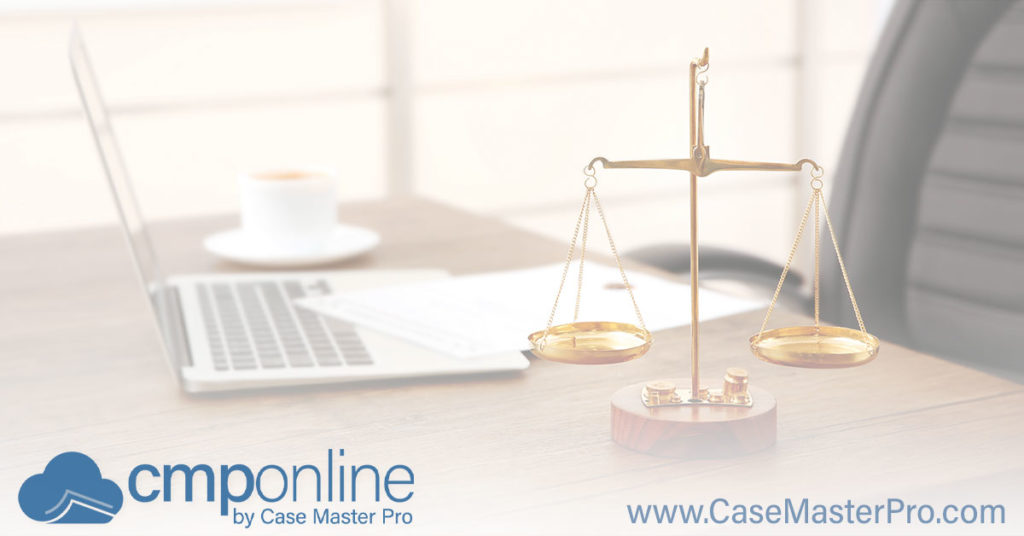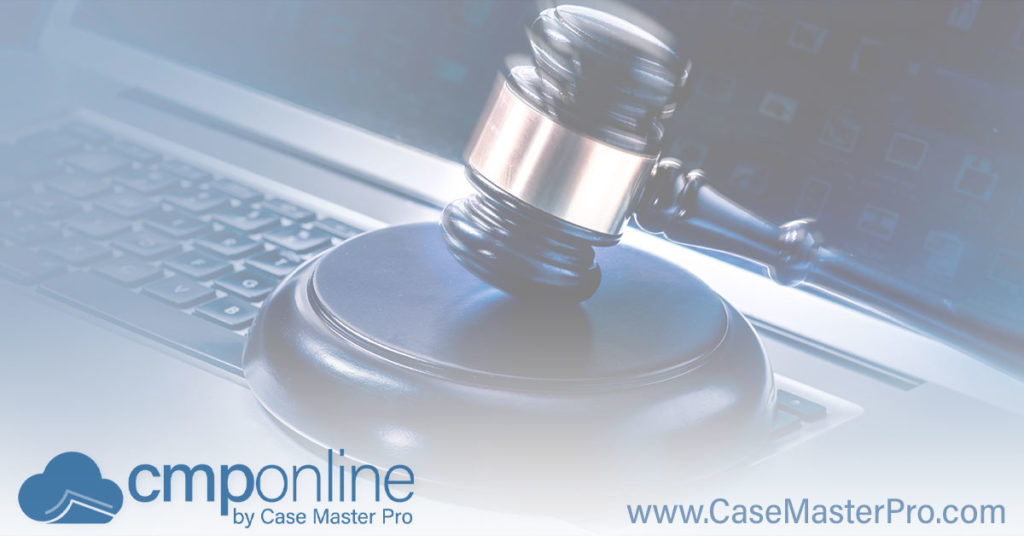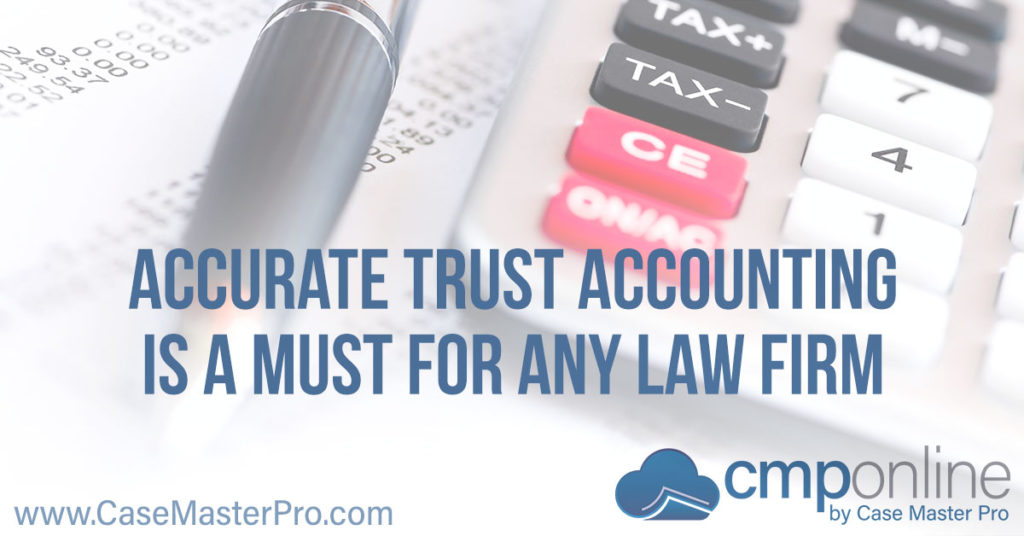
Welcome to a comprehensive guide on Legal Requirements for Debt Collection Attorneys. As legal professionals, we know that every misstep can lead to significant legal risks. But don’t worry – there’s help at hand! Understanding and following federal and state regulations are vital, not just for ethical practices but also to maximize recovery.
Navigating the balance between protecting creditor interests and respecting debtor rights is essential for ethical practice in creditors’ rights. And here lies an opportunity: software tools designed specifically to help navigate these complexities with ease and confidence.
So let’s dive into what it takes to comply with federal and state laws in debt collections by learning how proper documentation can make or break your case, exploring ways to mitigate legal risks, understanding IOLTA accounts’ role, and crafting demand letters that hit all the right notes. Ready?
Legal Steps for Debt Collection
The first step in the debt collection process is to validate the debts. This means confirming that the debtor indeed owes money and making sure all information about the amount owed, due dates, and other details are accurate.
A crucial part of this process involves providing a validation notice to debtors within five days of initial contact. This letter informs them about their right to dispute or verify the claimed debt under the Fair Debt Collection Practices Act (FDCPA).
Detailed Documentation Is Key
Maintaining organized documentation throughout your collections effort can help protect you from legal pitfalls down the road. Accurate documentation is an absolute necessity.
This includes recording every interaction with a debtor, tracking payment plans or settlements agreed upon, and noting any disputes raised by debtors and actions taken in response – essentially everything related to each case needs meticulous record-keeping.
Issuing Demand Letters
The next step after validating debts is issuing a demand letter. Crafted properly, these letters serve as an effective tool for encouraging prompt repayment while adhering strictly to legal requirements set forth by the FDCPA.
Your demand letter should include clear language detailing what’s owed along with deadlines for payments before further action is taken – be it court proceedings or otherwise. Remember: misrepresentations here could land you into hot water.
Lawsuit Proceedings if Necessary
If your attempts at resolution don’t yield results, you may need to take legal action against defaulters. However, court proceedings are costly and time-consuming, so this should be your last resort.
When filing a lawsuit, make sure you’re within the statute of limitations. If you file too late, your debt might become uncollectible.
Mitigating Legal Risks in Debt Collection

Being a creditor rights attorney means navigating the minefield of debt collection. The process is riddled with potential legal risks and pitfalls that can trip you up if not handled carefully. Let’s dig into how to dodge these dangers, from maintaining open lines of communication with debtors to keeping detailed records.
Transparent Communication: A Pillar for Risk Mitigation
First, transparent communication plays a vital role in risk mitigation during the collection process. Remember, under the FDCPA, it’s illegal to misrepresent yourself or use deceptive practices while collecting debts.
You need to make sure every interaction with debtors respects their rights and maintains ethical standards because one wrong step could lead to an expensive lawsuit.
The Power of Detailed Record-Keeping
Beyond good communication, record-keeping is another major player when mitigating legal risks in collections. You should maintain thorough documentation throughout each phase of the collections process.
This includes preserving copies of all communications sent or received regarding each case—everything from demand letters and payment plans agreed upon, right down to notes made during phone conversations. If ever challenged legally over your actions as a collector, these records become your best defense tool.
Legal case management software, such as CMPOnline, can be a valuable tool for organizing and managing information related to debt collection cases. By utilizing SaaS software, you can enhance the efficiency of your debt collection process, maintain organized records, and improve overall case management. Keep in mind that the specific features and functionalities may vary between different case management software, so it’s essential to familiarize yourself with the capabilities of the tool you are using.
Key Takeaway: Communication and detailed record-keeping is your safeguard against potential disputes or legal challenges. Being upfront with your debtors, avoiding any misleading tactics and maintaining comprehensive records is not just good practice—it’s a vital part of protecting yourself under the Fair Debt Collection Practices Act (FDCPA). So remember, transparency and meticulous documentation are key in adeptly managing legal risks when collecting debts.
Crafting a Demand Letter with Legal Compliance

When you’re faced with the task of collecting debt, one tool at your disposal is the demand letter. This isn’t just any letter, it’s a formal notification that initiates the legal process of debt collection. Let’s break down how to craft such an important document while keeping in line with all necessary laws and regulations.
The Anatomy of a Compliant Demand Letter
To begin crafting your demand letter, start by being clear about who owes what. Include accurate details like names, addresses, account numbers if applicable, and most importantly—the exact amount owed. These specifics are vital for establishing credibility and creating transparency between parties involved.
Next, be assertive, but within legal bounds. Make sure to state clearly why you’re writing this letter—essentially because payment has not been received yet despite prior reminders or notices—and express urgency for settling this issue promptly without resorting to aggressive language which might violate the FDCPA.
Remember Your Rights… and Theirs.
In terms of rights – both yours as the creditors’ rights attorney and theirs as debtor – awareness is crucial. For instance, make sure they know their right under the FDCPA to dispute the debt within 30 days after receiving your notice along with appropriate contact information, should they choose to do so.
A word on veiled threats – don’t use them. As per federal law guidelines set out by the FDCPA and FTC rulings alike, refrain from threatening actions that can’t be taken legally or those not intended at all. Violating these rules may lead to hefty penalties.
Key Takeaway: Writing a compliant demand letter is key in debt collection. It needs clear details about the owed amount along with an assertive but legal request for payment. Don’t forget to inform debtors of their rights and avoid any threats that violate FDCPA guidelines.
Interest on Lawyers’ Trust Accounts (IOLTA)

An Interest on Lawyers’ Trust Account, or IOLTA, is a specialized account where attorneys keep client funds separate from their own. These accounts are used for holding money that doesn’t belong to the lawyer but needs safekeeping during debt collection processes.
The American Bar Association emphasizes the importance of these accounts as they help protect clients and maintain ethical standards within the legal profession. Money in an IOLTA earns interest which often supports public service programs like civil legal aid for low-income individuals.
IOLTA Relevance in Debt Collection
IOLTAs play a critical role during debt collection cases. When an attorney collects debts on behalf of their clients, any recovered funds must first go into this trust account before being disbursed to the rightful owner. This process ensures transparency and safeguards against misappropriation.
This arrangement also allows attorneys to comply with state bar rules about handling client property responsibly – mishandling could lead to disciplinary action, such as license suspension or disbarment.
Ethical Considerations Related To IOLTAs
Using IOLTAs properly involves following certain ethical considerations dictated by state bar associations. For instance, lawyers can’t mix personal assets with those held in trust for clients – it’s important that there’s no commingling of funds since it violates professional conduct codes.
In addition, attorneys need clear records showing all transactions made through an IOLTA so they can demonstrate accountability if questioned by auditors or regulatory bodies – even simple errors may be seen as unethical behavior without proper documentation.
Maintaining Compliance With Case Master Pro
Managing IOLTAs and maintaining compliance can be complex, but Case Master Pro is designed to help simplify this task. This comprehensive software automates many of the tasks associated with managing these accounts.
The system generates detailed reports showing all transactions, helping lawyers keep accurate records without manual effort. Since most state bar associations require law firms to do a three-way reconciliation for trust accounts on a monthly or quarterly basis, CMPOnline has integrated features to effortlessly assist in this crucial trust reconciliation process.
Stay compliant effortlessly! With state bar associations requiring regular three-way reconciliations for trust accounts, CMPOnline's integrated features make the process a breeze. Monthly or quarterly, trust reconciliation made… Share on XKnow your Creditors’ Rights

Navigating the web of debt collection laws can be challenging, but as a creditors’ rights attorney, understanding these rules are crucial. It not only ensures compliance but also helps to maximize recovery efforts.
The FDCPA is a federal law that safeguards people from debt collectors who use oppressive or unlawful methods. However, it also sets forth clear guidelines that creditors’ rights attorneys must follow in their pursuit of collecting debts. For example, you cannot call a debtor at unreasonable hours or use misleading language when trying to collect.
The FDCPA, while stringent on consumer protection, does allow certain actions for legitimate debt collectors. These include contacting third parties for information about the debtor’s whereabouts and filing lawsuits against defaulting borrowers, if necessary.
Federal vs. State Laws
Federal law provides baseline protection for all U.S. citizens against harassment and misleading tactics by creditors, but remember, states have their own regulations too. Some may be more stringent than others, so it’s essential to understand what applies where you operate.
While federal laws like the FDCPA form the backbone of credit collection regulations across all states, individual state statutes may impose additional requirements and protections beyond those provided federally. Attorneys should familiarize themselves with both levels of law to avoid stepping over any legal boundaries inadvertently during collections procedures.
Quite a few of CMPOnline clients reside in the following states: a quick reference link to these regulations can be found here for Florida, New York, Maryland, and North Carolina.
Credit Reporting and Privacy Rules
Beyond just knowing what you can do under law as an attorney representing creditors’ interests in debt collections proceedings, there are specific limitations concerning privacy and credit reporting that require careful attention too.
The Fair Credit Reporting Act (FCRA) dictates how much information can be shared regarding a person’s financial situation without breaching privacy norms.
Navigating this space can be tricky, but doing so correctly ensures compliance and protects the attorney-client relationship.
Understanding Collection Laws
The legal landscape of debt collection is complex and can be tricky to navigate. Yet understanding these laws isn’t just beneficial—it’s crucial for any creditors’ rights attorney aiming to avoid potential pitfalls and ensure successful recoveries.
Federal Trade Commission Regulations
The Federal Trade Commission (FTC) oversees the Fair Debt Collection Practices Act (FDCPA). This act lays out specific guidelines that all collectors must follow when seeking repayment. It protects consumers from unfair practices, such as abusive language or deceitful tactics.
Beyond this, it also sets a standard time frame within which collectors may contact debtors—a violation of this can lead to severe penalties.
State Specific Rules & Guidelines
Apart from federal regulations like the FDCPA, there are state-specific rules too. For instance, in California under the Rosenthal Fair Debt Collection Practices Act, even original creditors need to adhere to certain restrictions typically reserved for third-party agencies at a national level.
Meanwhile states like Texas have unique stipulations regarding how many times a collector can call per week – overstep those limits and you might find yourself facing fines.
Mitigating Legal Risks
So, how can attorneys lessen these legal risks? The first step is to ensure you’re using comprehensive and reliable debt collection software. It automates many of the complex processes involved in debt recovery to minimize human error.
In our experience here at Case Master Pro, we have seen how firms using specialized software helps them stay compliant while pursuing collections across different jurisdictions. The built-in tools make sure their strategies align with local laws and prevent any potential pitfalls.
Key Takeaway: Being in the know about debt collection laws is essential for every attorney advocating creditor’s rights. FTC guidelines, rules specific to your state, and ways to dodge legal pitfalls are vital knowledge points. Get a grip on the FDCPA along with your state’s rules and stay current by keeping an eye on official resources or subscribing to law-based newsletters.
Debt Collection Licensing

Different states have unique licensing requirements for attorneys engaging in this practice. As an attorney, it is critical for you to be aware of the nuances in order to remain compliant with the law and ensure your clients’ interests are protected.
For instance, some states need attorneys to hold a specific license before they can start collecting debts on behalf of their clients. Other jurisdictions may require additional certifications or compliance checks, making it essential for you to understand what’s required where you operate.
Licensing Requirements Across States
State-specific laws often determine whether an attorney needs a special license to collect debts or not. The InsideARM state-by-state guide gives valuable insights into this topic.In Florida, as per Chapter 559 F.S (Florida Statute), lawyers representing creditors do not need extra licenses provided they are acting within their professional capacity. But if we look at California, Civil Code Section 1788 et seq suggests that even lawyers might need licenses under certain circumstances when involved in consumer debt collection activities.
FDCPA Verification of Debt Requirements
Adhering to the Fair Debt Collection Practices Act (FDCPA) is crucial for attorneys involved in debt collection. One critical aspect under this law is the verification of debts, which can be quite complex but essential nonetheless.
The Essence of Debt Verification
To make sure you’re collecting from the right debtor and for a valid amount, the FDCPA necessitates that lawyers verify all claimed debts before starting any collection activity. This isn’t just about checking numbers, it’s also about respecting consumer rights and ensuring fair practices.
A creditor has five days after initial contact with a debtor to send them written notice detailing the debt owed. If a consumer disputes this claim within 30 days, an attorney must stop collection activities until they’ve validated said disputed debt. The regulation helps ensure that buyers and sellers have confidence in one another, while simultaneously shielding people from being charged for inaccurate or inflated costs.
Navigating Validation Requests
If faced with validation requests from consumers disputing their alleged obligations, don’t panic. Here’s what you need to do: Stop collections immediately upon receiving such requests until you get solid proof supporting your client’s claims against these individuals.
It doesn’t matter if your client insists on their accuracy. Without proper documentation proving otherwise – think original contracts or detailed account statements – continuing efforts could land everyone in hot water legally.
Benefits of Compliant Practices
While the FDCPA imposes strict guidelines for attorneys, compliance brings its benefits. Firstly, it helps maintain your reputation as an ethical and professional attorney who respects debtor rights. This can lead to more referrals and higher client satisfaction rates.
In addition, by verifying debts properly before collection efforts start, you can avoid wasting time on invalid claims or misdirected collections – a win-win situation for all parties involved.
Key Takeaway: For attorneys collecting debts, following the Fair Debt Collection Practices Act (FDCPA) is key. This means verifying all claimed debts to make sure you’re dealing with the right debtor and for a correct amount before starting collections. Stop collection activities if a consumer disputes their debt until you have proof supporting your client’s claims. Remember, this isn’t just about protecting consumers. It also safeguards your reputation as an attorney and upholds ethical standards in our profession.
FAQs in Relation to Legal Requirements for Debt Collection for Attorneys
What is prohibited by the Fair Debt Collection Practices Act?
The FDCPA forbids debt collectors from using abusive or deceptive tactics, and it doesn’t allow them to contact debtors at inconvenient times or places.
What do debt collectors need to prove?
A collector needs to show that they’re legally allowed to collect this debt, that the debtor is responsible, and that detailed account information can be provided to show how much the debtor owes.
What is the debt collection rule?
The Debt Collection Rule outlines standards for third-party collection agencies. It addresses communication practices, consumer disputes handling, and use of newer technologies for communications with consumers.
What law requires debt collectors to follow fair guidelines?
Fair guidelines for debt collection are mandated by the Fair Debt Collection Practices Act (FDCPA).
Conclusion
So, we’ve unraveled the knot of legal requirements for debt collection for attorneys. We started by highlighting the Legal Steps for Debt collection.
We delved into the process steps, emphasizing the importance of validating debts and providing notices. Keeping organized documentation was underlined as a must-have practice.
Crafting demand letters that are legally compliant isn’t just about ticking boxes – clear language and accurate details make all the difference!
Compliance is key. It’s vital to follow federal and state laws not just ethically but also to maximize recovery.
Finally, We dove into how to validate debts effectively, grasp your rights as creditors and understand licensing requirements specific by states.
Remember, every step taken correctly in this process lessens risks and increases successful recoveries. You’re ready now. Start navigating with confidence!
Ready to take your practice to the next level of Debt Recovery? Case Master Pro offers SaaS-based Debt Collection Software tailored specifically for lawyers like you. With our tools at your disposal, navigating through different Collection Regulations becomes easier than ever before. Visit Case Master Pro and request a FREE DEMO today to start transforming how you handle debt collection cases!
